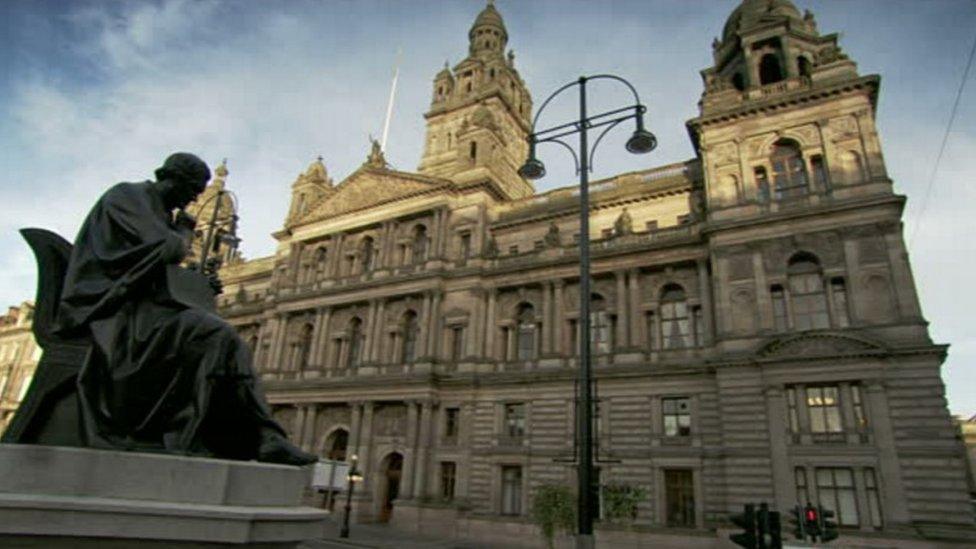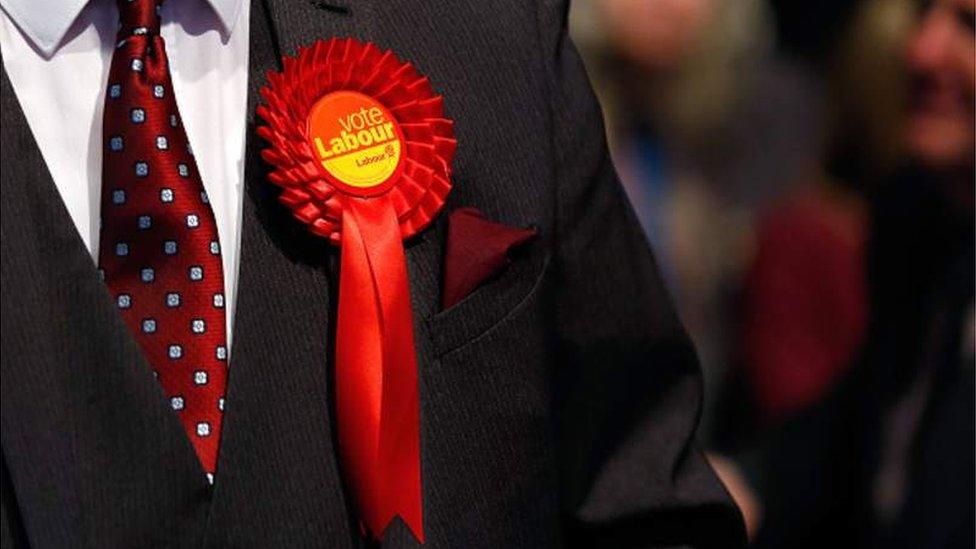'Malpractice' claim at Glasgow City Council
- Published

Police Scotland met with council officials to discuss the claims following an internal investigation
Police have met senior figures at Glasgow City Council amid allegations of malpractice, it has emerged.
It follows claims of cronyism within the land and environmental services department.
A long-running internal investigation has been looking at a number of issues, including alleged procurement irregularities.
The department's executive director resigned last November.
Police Scotland said their inquiries were at an early stage.
BBC Scotland understands officers have taken an interest in issues that arose through Glasgow City Council's internal investigation and that the local authority would be willing to co-operate with police.
It is also understood that a meeting took place recently between the council and police and that some of the issues spoken about involved people outside the council.
Internal investigation
The land and services department looks after services such as cleansing, bin collection, park, roads to environmental health and trading standards.
The department has about 4,000 employees and a revenue budget of £190m.
In November 2016 its executive director Brian Devlin - whose salary was about £120,000 - resigned after five years in the role.

The department under scrutiny deals with services such as cleansing, bin collection, parks and roads
It is understood that Mr Devlin was spoken to during the internal investigation.
The others interviewed by the internal investigators included two members of staff with close personal links to housing repair company Mears Scotland, which had also been at the centre of a local controversy over council contracts in neighbouring North Lanarkshire.
One is the son of its managing director who is married to Glasgow's Lord Provost Sadie Docherty.
The other is the partner of an executive with Mears who is now working in a different role at the council.
Key theme
However, Mears has no major contracts with Glasgow City Council and the company has denied wrongdoing.
Mears has confirmed it is not the subject of either the police investigation or Glasgow City Council's internal investigation.
A spokesman for Labour-run Glasgow City Council said it would not be appropriate to comment on an ongoing internal investigation.
The broader issue of openness and transparency within Glasgow City Council is set to be a key theme in the campaign ahead of May's local elections.
Supporters of the Labour administration may argue that the internal investigation demonstrates that they take such matters seriously.
However, the SNP believe that, in general, the council could do more to ensure it is transparent and seen to be so.
The leader of the SNP group on the council, Susan Aitken, stressed she did not wish to comment on this specific investigation or any of the individuals concerned.

Trust is set to be an issue at the local council elections in May
However, she said: "Glasgow SNP have already expressed serious concerns about public trust in the council in the light of a number of incidents over the years and have committed to appoint an independent expert to conduct a root and branch review of governance if elected."
The Times newspaper, which first reported the story in its Scottish edition, claimed the council's ties with Mears and a number of other firms were being looked at by the local authority's internal auditors.
In general, councils are expected to follow tight procurement rules and statutory procedures to ensure an open and transparent process is followed for any contract being awarded - major contracts also have to comply with EU law.
They should not be awarded on the basis of personal connections and no company tendering for a contract should be given an unfair advantage or disadvantage.
It would be seen as bad practice - and possibly a breach of rules - for anyone with a close personal connection to a company to be involved with decisions on whether or not they are awarded a contract.
Any allegation a council employee was able to give one company bidding for work an unfair advantage, through for instance sharing information, would also be taken very seriously.
Recommendations on who to award significant contracts to are made by council officials, although the actual decisions are taken by committees of councillors. It is unusual for these committees to go against the officials' recommendations.
Police Scotland said: "A matter has been raised with the police and inquiries are at an early stage to assess this information."